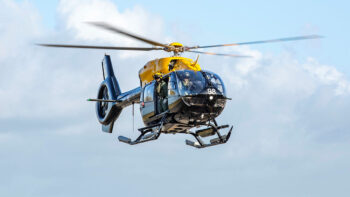 Libya or Iraq — which path will Syria follow? The rebel fighters of the Free Syrian Army have weathered a brutal crackdown and begun a rebound against the regime. Now the question is whether or not to arm them. Some analysts argue it’s the only way to keep up the pressure on the government of Bashar al-Assad until it cracks, like Muammar Gaddhafi’s did in Libya. Others fear that further escalation by the overwhelmingly Sunni rebels will frighten Alawites, Christians, and other minorities into rallying behind the Alawite Assad, sending Syria towards a sectarian war of massacres like Iraq‘s.
Libya or Iraq — which path will Syria follow? The rebel fighters of the Free Syrian Army have weathered a brutal crackdown and begun a rebound against the regime. Now the question is whether or not to arm them. Some analysts argue it’s the only way to keep up the pressure on the government of Bashar al-Assad until it cracks, like Muammar Gaddhafi’s did in Libya. Others fear that further escalation by the overwhelmingly Sunni rebels will frighten Alawites, Christians, and other minorities into rallying behind the Alawite Assad, sending Syria towards a sectarian war of massacres like Iraq‘s.
“Military assistance to the Free Syrian Army and the armed resistance is a very important part of the process to bring down the regime,” said Jeffrey White, former chief of the Defense Intelligence Agency’s Mideast division. After suffering heavy losses in February, “in March the FSA began to rebound,” said White, citing 135 reported clashes with government forces that month, surpassing January’s peak of 115: “The FSA far from being vanquished is definitely back in the game as of early April.” White is now defense fellow at the Washington Institute for Near East Policy, where he spoke about the Syrian insurgency on Tuesday.
That’s the same day interventionist Senators Joe Lieberman (I-CT) and John McCain (R-Ariz.) met with leaders of the Free Syrian Army and its unarmed counterpart, the Syrian National Council, at a refugee camp inside Turkey. Council representatives will travel to Washington later this month and are scheduled to speak alongside the State Department’s assistant secretary for the Near East, Jeffrey Feltman.
White cautioned, however, that this high-level leadership in exile has little or no control over the semi-autonomous rebel battalions on the ground, which are just beginning to coordinate their operations within a single province, let alone across Syria’s borders. “It does’t look like there’s much coordination between those operations and the Free Syrian Army’s so-called headquarters in Turkey,” White said — although making the exile leadership a conduit for arms and money would strengthen their position.
On the upside, White said, he’s found no evidence behind accusations that the Free Syrian Army is influenced by al-Qaeda or other Sunni extremists. Overall, he said of the insurgency, “it’s worthy of support, lethal and non-lethal,” especially ammunition, which is so short that rebel fighters sometimes run out mid-battle. “They will never be capable of meeting the Syrian army on the field of battle and defeating it in a conventional sense, [but] it erodes the regime.”
In the audience, Stimson Center Syria specialist Mona Yacoubian was not so sure. In a struggle as much political as military, she asked, might not arming the rebels — overwhelmingly members of Syria’s Sunni Arab majority — simply frighten more minorities into the arms of the Assad dynasty, Alawites themselves who have always posed as the protectors of both their co-religionists and Christians?
White and fellow briefer Andrew Exum, of the Center for a New American Security, argued that the sectarian fault lines were not so stark. Politically, said Exum, “the al-Assad regime has done a very good job…of capturing not just the Alawite officer corps within the military but also the Sunni business elite.” The Administration’s hopes that these two groups could be peacefully persuaded to turn against Assad, Exum said, have come to naught.
Military, White added, “the Syrian Army is totally committed, as an organization, to suppression”: Every division of the regular army — not just elite formations and the largely Alawite shabiha militia — has contributed at least some troops to the crackdown, which would be impossible without at least some Sunnis willing to pull the trigger for Assad.
Yacoubian was unconvinced, she told Breaking Defense in an interview afterwards. “I think arming the opposition will accelerate and deepen the dynamic towards a protracted civil war,” she said. Politically, she argues the Sunni business elites as more scared of Assad than actively supportive. Military, while other units are involved, she said, “much of the repression, much of the killing… is being done by the shabiha [militia] — Alawite armed thugs — and the most loyal units to the President are the 4th Armored [Division, commanded by Bashar Assad’s younger brother] and the Presidential Guard, which are largely Shiite.” (Alawites are generally considered a Shiite sect).
White agreed that the regime has largely pulled its Sunni conscript infantry out of close-in urban fighting — they kept defecting en masse — and now relies on politically motivated shock troops supported by long-range firepower from artillery and, increasingly, attack helicopters. Arming the Alawite thugs of the shahiba has been a particularly effective move for Assad, White said: “The regime is using them not just to beat up demonstrators, the regime is using them as regular infantry; they’re committing them to battle in the cities with the tanks.” Conversely, White acknowledged in a follow-up email with Breaking Defense, while eight or nine brigadier generals have reportedly defected to the Free Syrian Army, the limited evidence available suggests that they all were probably Sunni. All of these are signs of hardening sectarian battle lines, not a softening of Assad’s core support among Alawites or a broadening of the Sunni insurgency’s appeal.
What’s the alternative to escalation, though? Certainly not Kofi Annan’s ceasefire plan, blatantly disregarded by the regime. The US is hardly the master of the situation, either. “Even if we don’t arm and train the FSA,” said Exum, “other groups are going to,” particularly the Saudi Arabians and other Sunni Arab states unnerved by the Shiite axis of Hezbollah, Syria, and Iran. Conversely, Exum added, “even if we can convince Russia not to support the Syrian government, Iran will.”
“The conflict is moving inexorably to an arming of the opposition, not necessarily by the US, but certainly by others,” Yacoubian agreed regretfully. “Time is not on the side of those such as me who are calling for some other way.” She still thinks that if Syria were abandoned by its last big global backers, Russia and China, that might embolden Alawite military commanders and Sunni business magnates to reject the regime. But “it’s a real long shot,” she said. “That’s the last and only hope.”
‘Poisoned’ data could wreck AIs in wartime, warns Army software acquisition chief
“Any commercial LLM that is out there, that is learning from the internet, is poisoned today,” Jennifer Swanson said, “but our main concern [is] those algorithms that are going to be informing battlefield decisions.”


























